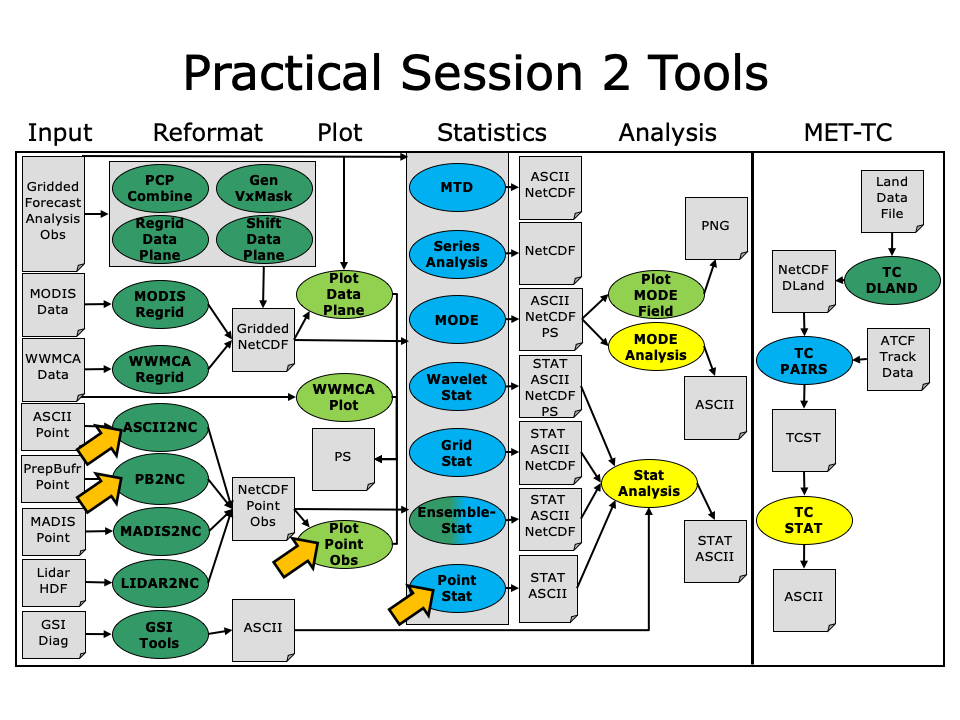METplus Practical Session 2
During this practical session, you will run the tools indicated below:
 You may navigate through this tutorial by following the links at the bottom of each page or by using the menu navigation.
You may navigate through this tutorial by following the links at the bottom of each page or by using the menu navigation.
Since you already set up your runtime enviroment in Session 1, you should be ready to go! To be sure, run through the following instructions to check that your environment is set correctly.
Prerequisites: Verify Environment is Set Correctly
Before running these instructions, you will need to ensure that you have a few environment variables set up correctly. If they are not set correctly, these instructions will not work properly.
- Check that you have METPLUS_TUTORIAL_DIR set correctly:
ls ${METPLUS_TUTORIAL_DIR}
If you don't see a path in your user directory output to the screen, set this environment variable in your user profile before continuing.
- Check that you have METPLUS_BUILD_BASE, MET_BUILD_BASE, and METPLUS_DATA set correctly:
echo ${MET_BUILD_BASE}
echo ${METPLUS_DATA}
ls ${METPLUS_BUILD_BASE}
ls ${MET_BUILD_BASE}
ls ${METPLUS_DATA}
If any of these variables are not set, please set them. They will be referenced throughout the tutorial.
MET_BUILD_BASE is the full path to the MET installation (/path/to/met-X.Y)
METPLUS_DATA is the location of the sample test data directory
- Check that you have loaded the MET module correctly:
You should see the usage statement for Point-Stat. The version number listed should correspond to the version listed in MET_BUILD_BASE. If it does not, you will need to either reload the met module, or add ${MET_BUILD_BASE}/bin to your PATH.
- Check that METPLUS_PARM_BASE was set correctly.
ls ${METPLUS_PARM_BASE}
If you don't see the full path to your METplus/parm directory under the tutorial directory, please set it. See the instructions in Session 1 for more information.
- Check that the correct version of master_metplus.py is in your PATH:
If you don't see the full path to script from the shared installation, please set it. It should look the same as the output from this command:
ls ${METPLUS_BUILD_BASE}/ush/master_metplus.py
See the instructions in Session 1 for more information.
You are now ready to move on to the next section.